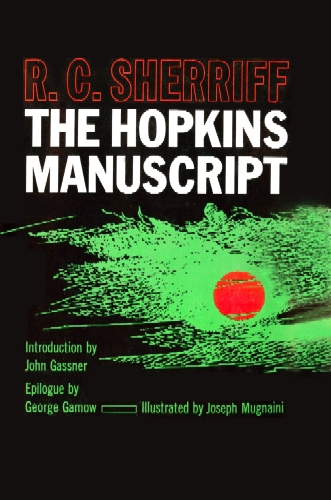THE HOPKINS MANUSCRIPT
While gathering brushwood for a fire to keep off the packs of wild dogs that roam the former site of London, an archeologist of the Royal Society of Abyssinia found an ancient, 20th-century thermos bottle. In the bottle was the Hopkins Manuscript. Since the damp climate of the British Isles rotted all books and papers, practically the only other records of the white man's glory known to the vigorous civilizations of the East were a rusty iron tablet (when deciphered, it read: Keep Off the Grass) and an oblong stone (it was believed to read: Peckham 3 miles).
In the small, smug thoughts and words of Edgar Hopkins (poultry breeder and amateur astronomer), Ex-Insurance Clerk Robert Cedric Sherriff (Journey's End, St. Helena) gives an insect's-eye view of what happened when the moon got out of whack in 1945, plunged into the Atlantic Ocean, all but wiped out Europe by tornado, earthquake and flood. The moon's havoc was less than the human havoc which followed. England, now changed from an island to a landlocked meadow on the fringe of Europe, demanded a "British Corridor" to the sea at Gibraltar, but the Corridor blocked Europe's nations from the oil and metals discovered on the fallen moon. In the wars that resulted, the Asiatic peoples revolted and completed the moon's work.
Off to the comparative safety of London with its 700 inhabitants moved Survivor Hopkins to chronicle his sad saga by the light of a piece of string pushed through a strip of bacon. At night he wrote, by day he hunted for food in the barren city. His sole neighbor, an old lady, lived in the National Gallery. "She heard that it was empty, and wanted to gratify her love of art and lust for possession during the last days that remain to her." She lived on pigeons that fell dead from the Nelson Column, cooking them over a fire of Dutch masterpieces, which she disiked.
Trade Paperback:
6 x 9 inch
288 pages
$19.95
